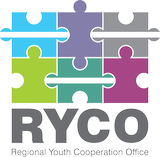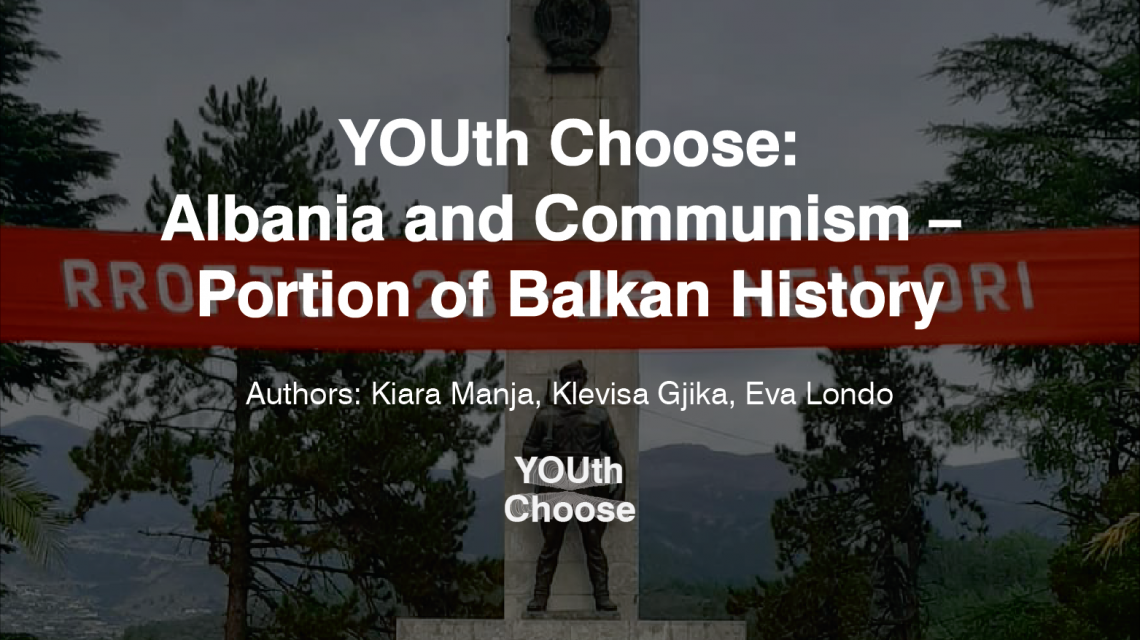Communism was created to be perfect. An utopian concept conceived upon the idea to make the world an equal and happier place, with everyone gaining what they deserve, and no one more than the other. It was supposed to make me, you, us, and everyone, live a dream, but dreams fail history and end up ruining societies, people, places.
Albania has so much to share about the hardships of this utopic system it experienced for almost 50 years, from 1946 to 1991. A lot happened during this time, considered to be the darkest in Albanian’ history, ruled by the strong hand of the dictator Enver Hoxha. Regarding the severity of the system, photojournalist Michel Setboun, who has documented the whole journey of Albania from communism to democracy, describes Albanian history as “History of the world in one place”.
Now, 30 years from the demise of communism, that period still haunts Albania, but surprisingly it is forgotten in history textbooks, leaving the young generation with little, if not without, knowledge about the past. And the most problematic issue is that history repeats itself if forgotten.
We talked with fellow students to check out how much they know about this part of history. “I don’t know much about communism in Albania as high school books had little information.” – said 20 year old Brisilda, confessing that history textbooks dedicate only one or two topics about this period that their parents have lived for half a century.
However, young people are still excited to learn about this topic, considering it as just a well-narrated story but not one they relate with. And this may be because their parents or grandparents speak little about that because of the traumatic memories it brings. So, we witnessed that the more we talked with students about the history of communism the more they wanted to learn.
Fjona Manja, a third year medicine student, told us how she had learned from her parents about the lack of freedom of speech. She recalls one instance when she asked her dad about the political victims. “I asked my dad: “When the police came to arrest somebody who had spoken badly about the regiment, about Enver Hoxha, what did other people do?”. My dad said that they did nothing. They just watched and they felt bad but they couldn’t even say they felt bad about that man because it would be called treason and they would end up being punished too.”
Journalism student Xhulio Alishollari stated that he is very much interested about the topic and that he had visited several museums dedicated to that era. “In the third year of high school we went on a trip to Spaç Prison and it was in a very difficult area. It was a huge prison because it was one of the biggest prisons of communism in Albania. There were a lot of sad stories.”
He also tells us about another prison he had visited located near Përmet: “When I was in the third year in high school we went on another trip to a communism prison near Përmet, and we saw buildings where people were held prisoners. The conditions they were kept in were terrible and many people had died just because of that.”
While others told us about daily life stories they had heard from their parents. “They had to wake up early and wait in a line to get the basics like milk, cheese, or take bread in portions” said Klisela.
“There were very few resources back then. You had very few things to consume with your family. You had to stay in a queue to get things that nowadays you can find easily”, adds Klavio.
What caught our attention was the interest these students had on the topic and that some of them had visited museums to get to know more. Actually museums seem to be a good way to become aware of the past, especially for the youth. They can be with friends and have a small chat while exploring the past. There are different concentration camps and prisons all over the place like those Xhulio had visited, that are open to the public and witness the hardships of the regime. While in the capital, Tirana, there are currently three museums dedicated to the dictatorship: The House of Leaves, Bunk ‘Art 1 and Bunk`Art 2. The House of Leaves, what was once the center of espionage in our country, is today a place to witness all the tracking and espionage devices of that period and provides its visitors insight of how the government controlled each person’s life.
It was through this system, that people were declared traitors and then restrained and tortured, because even “walls had ears”, spying on everything and everyone, and one can get an idea of how that was previously done inside the Museum of Bunk’Art.
The Bunk’Art museums give the insight of the prisons, with every torture that one had to suffer in there. A very disturbing sight but even more troubling to know that it is true. And these atrocities have happened to thousands just 30 years ago, not far ago to forget, not too near to repeat. In both museums there are long lists with names of those who suffered back then, the interned people who are now still fighting the nightmares of the past that haunts them.
“I remember from my first visit in the House of Leaves meeting an old man who had been deported to a small village in the south. With tears in his eyes he told us about what he had gone through. Terror stories I couldn’t even imagine before, but that he had lived for real. Being beaten every day, left hungry for days and even the stories of how he had gained his bullet scars. I remember being young back then and just feeling really traumatized but now I understand that he must have felt worse, and that maybe he was one of the simple and lucky cases because a lot others were tortured and then killed or left to die from untreated wounds. And for what? Just because of their liberal thoughts spoken out, that were deemed a menace to the system,” Eva Londo explains.
On a zoom chat with French photographer, Michel Setboun, who has witnessed the history of Albanian in two different eras, he agrees that young people don’t know the history of their own society which he considered to be “10 times bigger than Albania itself”. To him, Albania’s history represents “the history of the world in a small place” comparing it with that of North Korea, a statement shocking and very disturbing but nonetheless true.
“Everybody in Albania has a story to tell. They all can write a book,” says Setborn, making us understand how many untold stories there are, some of which he shared with us. He recalls a woman whom he had photographed. In the photo she was wearing a very random dress where some dirty sports were clearly distinguished. Michel identified that woman, located her and went to meet her years later on another visit in Albania. She now was the owner of a 8-stories hotel and was rich. And so on, people have evolved, the country has evolved as well what Michel Setboun says about the past.
We started this article with the intention to speak about communism in Albania and the role of young people and to shed some light on its past. But we discovered how much there is to be learned yet. Albania is not just a small place in the Western Balkan, but it has a story of itself which proves that the region is amazing because of the story that comes from each and every society which is part of it. And the better we understand the story of the other, the better we see the similarities and the more we would relate to each other.
Authors: Kiara Manja, Klevisa Gjika, Eva Londo
Watch the video prepared by Kiara Manja, Klevisa Gjika, Eva Londo on the history of communism in Albania and talks they had with fellow students:
This story was produced during the three-month Program for Students of Journalism in the Western Balkans within the framework of the advocacy project “A Better Region Starts with Youth” implemented by RYCO with the support of the Federal Republic of Germany. All journalists’ work is their own and the content of any given article does not represent the opinion of RYCO, and RYCO cannot guarantee the validity and the accuracy of the information that these stories contain.



